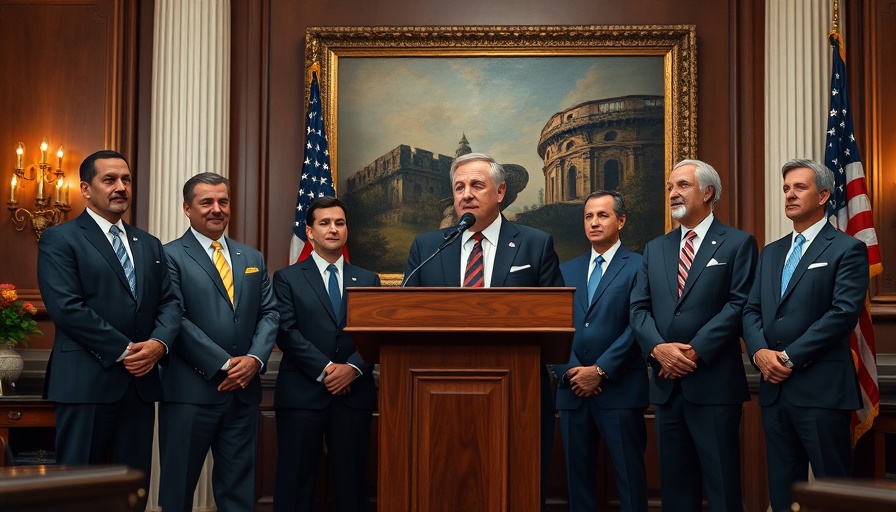
Hyundai's Massive Investment in U.S. Manufacturing
Hyundai Motor Group is making waves in the automotive industry with its announcement of a $21 billion investment in its U.S. operations. This move not only showcases Hyundai's commitment to manufacturing on American soil but also reflects the ongoing transformation of the automotive landscape as companies pivot towards electric vehicles. A crucial part of this investment is the establishment of a $5.8 billion steel plant in Louisiana, which is expected to enhance production capabilities and create over 1,300 jobs.
Building for the Future: The New Steel Plant
The Louisiana steel plant will be Hyundai's first of its kind in the United States, with the capacity to produce 2.7 million metric tons of steel annually. This steel will support vehicle production at Hyundai's plants in Georgia and Alabama, which together aim to manufacture more than one million vehicles per year, moving towards a more autonomous and electric-driven market. Not only does this venture aim to bolster local economies, but it also signifies Hyundai's strategic alignment with upcoming production needs for electric vehicles.
The Federal Support Landscape
The focus on U.S. manufacturing has garnered significant attention from political leaders, including former President Donald Trump, who emphasizes the importance of onshoring jobs. Discussions around this $21 billion investment took place in the White House, highlighting how corporate investments intertwine with political policies aimed at maximizing domestic job creation. While the Trump administration has faced criticism, securing jobs through manufacturing remains a pivotal point in their agenda.
The Impacts of Tariffs on the Auto Industry
As Hyundai commits to this large-scale investment, the backdrop is the looming threat of new tariffs in the auto sector. Automakers are currently navigating potential duties on imports, making proactive investments essential for maintaining competitiveness. Just as Hyundai ramps up its production capabilities, industry players are also strategizing to mitigate the effects of impending tariffs, a situation that could alter the playing field significantly for foreign and domestic manufacturers alike.
Trends Shaping the Automotive Sector
The surge in investment in U.S. manufacturing, especially in the realm of electric vehicles, points towards a larger trend of transitioning into sustainable practices. Companies across the board understand that adapting to consumer demands for electric vehicles is not just an option but a necessity. The U.S. automotive industry is on the brink of a pivotal shift, where innovative practices in manufacturing and production efficiency will define their success in the coming years.
Conclusion: A Critical Time for Business Decisions
As construction companies and their business clients follow these developments closely, understanding the implications of such investments is crucial. Hyundai's decision sets a precedent for other manufacturers, showcasing the potential benefits of investing in domestic operations while addressing sustainability challenges. For businesses looking to thrive, keeping informed about these shifts in automotive manufacturing and market dynamics is essential for strategic planning and operational efficiency.
 Add Row
Add Row  Add
Add 




 Add Row
Add Row  Add
Add 

Write A Comment